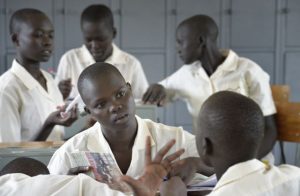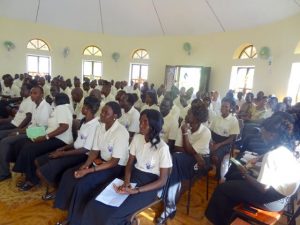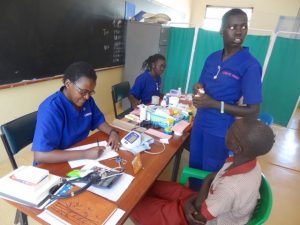A REASON TO RISE
By Bill Firman (SSS) – My great friend and mentor, Br Damien Harvey, used to say: ‘A man has to have a reason to get up in the morning’. He was reflecting on the Brothers’ way of life. I am sure he would be equally comfortable with the more general statement: ‘Every person needs a reason to rise in the morning’, to get out of bed and start the day with optimism. The reason may simply be that you have something you really like to do that you are anticipating, eg an outing, going to a concert or for a meal with friends. The reason may also be one of deeper motivation that you really believe in what you are doing and are prepared to face whatever confronts you to achieve your goal.
The German philosopher, Friedrich Nietzsche, who published extensively in the 1870s and 1880s, offered many criticisms of traditional morality and religion. I am no expert on this very complex thinker whose views, as I understand them, often conflict with my own, but he was a master of thought provoking aphorisms. One fanciful one was, ‘And those who were seen dancing were thought to be insane by those who could not hear the music.’ As a metaphor, that rings true to me. Too often we only see half the picture and make misjudgements based on our limited insights.

Girls at the Loreto Secondary School in Rumbek, South Sudan.
I have often observed the incredible efforts made by highly motivated students who want to succeed and once again, a Nietzsche aphorism comes to mind: ‘He who has a why to live for can bear with almost any how’. It is amazing how much can be achieved and how long and hard we can work if we really are focused on a clear goal. Yes, there are often problems, obstacles, distractions along the way and we can make the mistake of focusing on those rather than our goal. But again Nietzsche insightfully observes: ‘That which does not kill us makes us stronger’.
Which brings me to the situation in South Sudan. Too many have been killed or driven from their homes, hundreds of thousands too many. But we cannot bring back those who have been so unjustly and mercilessly killed. What we must do primarily is to focus on those who are still able to dance. In 2005, the published statistic for South Sudan is that only 23% of children ever got to attend primary school at some stage – not finish just attend long enough to be registered. Only 35% of those were girls. So, only 8% of girls ever went to school. By independence in 2011, the percentage had risen sharply to 46% of children going to school. Good progress but still the majority of children were not going to school. But let us think about the 8 per cent. It takes 12 years to complete primary and secondary. 12 years added on to 2005 takes us to 2017. So every young woman undertaking tertiary studies now was lucky enough to be in that 8% who were attending primary before 2005 – or they were educated outside the country in refugee camps such as Kakuma. This week, 14 women and 18 men will graduate as registered nurses or midwives, after three years of full-time study in residence at our Catholic Health Training Institute in Wau. That is quite a select achievement.

CHTI students in chapel
Last week I observed 240 secondary school girls at assembly at the Loreto School in Rumbek. Many are older than their peers in other countries but there they are – already graduates of primary school and most will go on to complete their secondary education. With good teaching, all of last year’s Loreto ‘Senior Fours’ passed well. A new better-educated generation is emerging. Opportunity now exists that did not exist 12 years ago. The odd student finds it hard to get out of bed in the morning but most are highly motivated. So are the teachers, many of whom are living away from their own families, to give a good education to the girls boarding at Loreto. It is highly motivating to be making a difference, again quoting Brother Damien, ‘to be making a contribution.’
Let the dance go on!
– Br Bill

Sr Peninah in Loreto clinic
Photos credits: Paul Jeffrey

